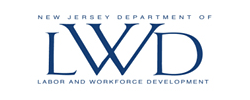PURPOSE
Priority of service for adult career and training services be given to “high needs” adults who are categorized by the following:
● Receive public assistance
● Qualify as low income
● Are basic skills deficient
● Are veterans of the US Armed Forces (and spouses)
● Out of school youth
● Individuals with disabilities
● Returning citizens (ex-offenders)
During the initial counseling and assessment phase, customers are screened for eligibility and prioritized according to their level of need.
Please note staff is also trained on the order of priority, and One Stop management ensures compliance through policy, meetings and continuous quality improvement exercises. The One Stop Career Center addresses priorities of services through operational procedures that identify customers by funding needs and demographics, ensuring service priority in the event of funding limitations.
BACKGROUND
Local workforce development boards must develop and implement a policy for prioritizing career and training services to individuals served with WIOA Adult funding.
DEFINITIONS:
Priority of Service means that individuals who meet the priority criteria in effect at the time of program enrollment are given priority over a person who does not meet the priority criteria for receipt of employment, training and placement services. Person’s meeting priority criteria receive access to the service earlier in time than a person who does not meet priority criteria; or in the event that services are limited, the person meeting the priority criteria receives access to the service instead of a person who does not meet the criteria.
Veteran means a person who served in the active military, naval, or air service, and who was discharged or released therefrom under conditions other than dishonorable. Active service includes full‐time duty in the National Guard or a Reserve component, other than full‐time duty for training purposes.
Eligible spouse means the spouse of any of the following:
(1) Any veteran who died of a service‐connected disability;
(2) Any member of the Armed Forces serving on active duty who, at the time of application for the priority, is listed in one or more of the following categories and has been so listed for a total of more than 90 days:
(i) Missing in action;
(ii) Captured in line of duty by a hostile force; or
(iii) Forcibly detained or interned in line of duty by a foreign government or power;
(3) Any veteran who has a total disability resulting from a service‐connected disability, as evaluated by the Department of Veterans Affairs;
(4) Any veteran who died while a disability, as indicated in paragraph (3) of this section, was in existence.
Public Assistance/Low Income Criteria for adults means any of the following:
Recipients of public assistance and other low income individuals are defined as an individual who:
1. Receives or is a member of a family that receives, or has received in the past 6 months, cash payments under a Federal, State, or local income‐based public assistance program.
2. Is a member of a family with total family income that does not exceed the higher of:
● the poverty line; or
● 70 percent of the lower living standard income level.
3. Qualifies as a homeless individual; or
4. Is an individual with a disability whose own income meets the requirement of a program described in section 2 above, but who is a member of a family whose income does not meet such requirements.
Basic Skills Deficient for adults, as defined by WIOA, refers to any of the following:
1. An individual who is unable to compute or solve problems, or read, write, or speak English, at
a level necessary to function on the job, in the individual’s family, or in society.
Homeless, homeless individual or homeless person as defined by the Violence Against Women Act refers to any of the following:
1. An individual who lacks a fixed, regular, and adequate nighttime residence; and includes
(i) an individual who is sharing the housing of other persons due to loss of housing, economic hardship, or a similar reason;
(ii) is living in a motel, hotel, trailer park, or campground due to the lack of alternative adequate accommodations;
(iii) is living in an emergency or transitional shelter; (IV) is abandoned in a hospital; or (V) is awaiting foster care placement; or
2. An individual who has a primary nighttime residence that is a public or private place not designed for or ordinarily used as a regular sleeping accommodation for human beings; or
POLICY
WIOA 134(c)(3)(E) establishes a priority requirement for funds allocated to the local area for adult employment and training services. Veterans and eligible spouses continue to receive priority of services for all services funded by the Department of Labor. Career center staff working with WIOA Adult eligible individuals must give priority for receipt of career and training services to participants in the following order:
● First priority shall be given to eligible adults who are recipients of public assistance, other low‐ income individuals, or individuals who are basic skills deficient who also meet the definition of veteran or eligible spouse.
● Second priority of service shall be given to non‐veteran eligible adults who are recipients of public assistance, other low‐income individuals or individuals who are basic skills deficient.
● Third priority shall be given to adult program eligible veterans or eligible spouses who are not low income, not public assistance recipients or who are not basic skills deficient.
● Fourth priority is for adult program eligible non‐veterans who are not low income, not public assistance recipients or who are not basic skills deficient.
Note: military earnings are not to be included when calculating income for veterans or transitioning service members for this priority.
Federal priority guidelines apply to WIOA Adult funds only, therefore funds allocated for dislocated workers are not subject to this requirement [20 CFR 663.610]. However, dislocated workers who are also veterans shall receive priority for career or training services over dislocated workers who are non‐ veterans.





